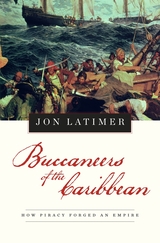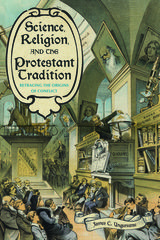
Listen to a short interview with Jon LatimerHost: Chris Gondek | Producer: Heron & Crane
In the first complete history of the War of 1812 written from a British perspective, Jon Latimer offers an authoritative and compelling account that places the conflict in its strategic context within the Napoleonic wars. The British viewed the War of 1812 as an ill-fated attempt by the young American republic to annex Canada. For British Canada, populated by many loyalists who had fled the American Revolution, this was a war for survival. The Americans aimed both to assert their nationhood on the global stage and to expand their territory northward and westward.
Americans would later find in this war many iconic moments in their national story--the bombardment of Fort McHenry (the inspiration for Francis Scott Key's "Star Spangled Banner"); the Battle of Lake Erie; the burning of Washington; the death of Tecumseh; Andrew Jackson's victory at New Orleans--but their war of conquest was ultimately a failure. Even the issues of neutrality and impressment that had triggered the war were not resolved in the peace treaty. For Britain, the war was subsumed under a long conflict to stop Napoleon and to preserve the empire. The one lasting result of the war was in Canada, where the British victory eliminated the threat of American conquest, and set Canadians on the road toward confederation.
Latimer describes events not merely through the eyes of generals, admirals, and politicians but through those of the soldiers, sailors, and ordinary people who were directly affected. Drawing on personal letters, diaries, and memoirs, he crafts an intimate narrative that marches the reader into the heat of battle.

In this compelling account of the decisive World War II battle of El Alamein, Jon Latimer brings to life the harsh desert conflict in North Africa. In October 1942, after a two-year seesaw campaign across the wasteland of western Egypt and eastern Libya, the British Eighth Army not only achieved a significant military victory over the combined German-Italian Panzer Army but also provided an enormous psychological boost for the Allies.
This is the story of two of the most intriguing commanders of the war. Latimer offers remarkably balanced portraits of Bernard Law Montgomery, whose real achievement was overshadowed by his prickly ego, and Erwin Rommel, whose tactical brilliance could not overcome his disdain for the administrative side of war. Alamein, Latimer notes, was a victory for modern armaments, with concentrated artillery used on a scale not seen since 1918. Equally important were the critical contributions of naval and air forces in cutting off the German supply lines and supporting the ground troops, roles largely overlooked in standard accounts.
But Alamein is at heart the story of the infantry soldiers who fought in a scorched wilderness. Often using their own words, Latimer vividly describes the experiences of the gunners, sappers, cavalrymen, and airmen--Britons, Canadians, Australians, Indians, Germans, Italians, and others--who struggled in the heat, sand, and dust of this brutal environment.
With their success at El Alamein, the British forces would drive Rommel's army into Tunisia--and ultimate destruction in the North African Campaign of 1943.

During the seventeenth century, sea raiders known as buccaneers controlled the Caribbean. Buccaneers were not pirates but privateers, licensed to attack the Spanish by the governments of England, France, and Holland. Jon Latimer charts the exploits of these men who followed few rules as they forged new empires.
Lacking effective naval power, the English, French, and Dutch developed privateering as the means of protecting their young New World colonies. They developed a form of semi-legal private warfare, often carried out regardless of political developments on the other side of the Atlantic, but usually with tacit approval from London, Paris, and Amsterdam. Drawing on letters, diaries, and memoirs of such figures as William Dampier, Sieur Raveneau de Lussan, Alexander Oliver Exquemelin, and Basil Ringrose, Jon Latimer portrays a world of madcap adventurers, daredevil seafarers, and dangerous rogues.
Piet Hein of the Dutch West India Company captured, off the coast of Cuba, the Spanish treasure fleet, laden with American silver, and funded the Dutch for eight months in their fight against Spain. The switch from tobacco to sugar transformed the Caribbean, and everyone scrambled for a quick profit in the slave trade. Oliver Cromwell’s ludicrous Western Design—a grand scheme to conquer Central America—fizzled spectacularly, while the surprising prosperity of Jamaica set England solidly on the road to empire. The infamous Henry Morgan conducted a dramatic raid through the tropical jungle of Panama that ended in the burning of Panama City.
From the crash of gunfire to the billowing sail on the horizon, Latimer brilliantly evokes the dramatic age of the buccaneers.
READERS
Browse our collection.
PUBLISHERS
See BiblioVault's publisher services.
STUDENT SERVICES
Files for college accessibility offices.
UChicago Accessibility Resources
home | accessibility | search | about | contact us
BiblioVault ® 2001 - 2024
The University of Chicago Press









